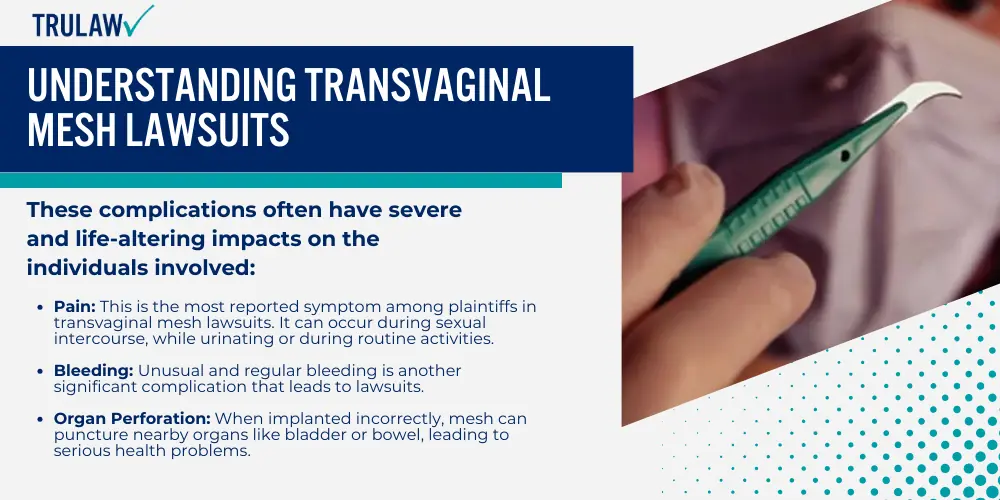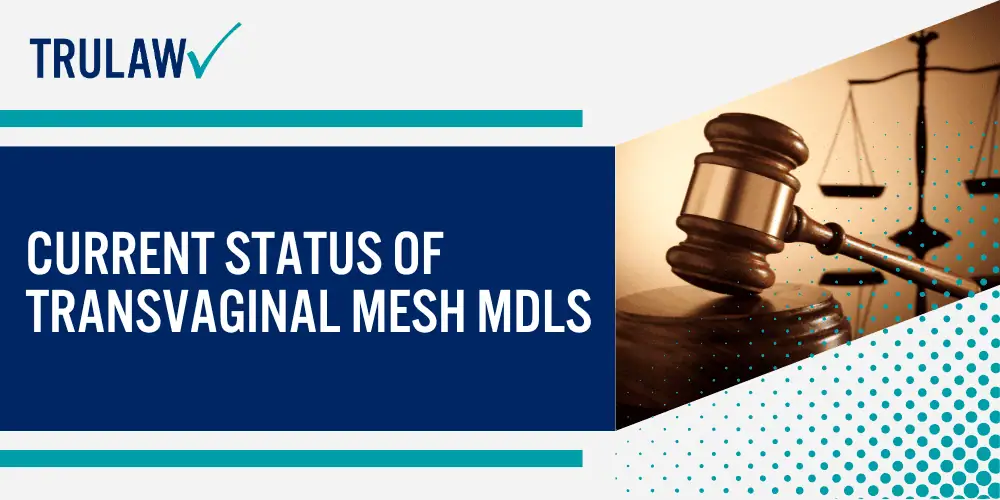In this section, we delve into Transvaginal Mesh Lawsuits, discussing who can participate, the typical complications that trigger these legal battles, and allegations made against product manufacturers.

Common complications leading to lawsuits
In transvaginal mesh lawsuits, several complications often emerge as common reasons for legal action.
These complications often have severe and life-altering impacts on the individuals involved.
- Pain: This is the most reported symptom among plaintiffs in transvaginal mesh lawsuits. It can occur during sexual intercourse, while urinating or during routine activities.
- Bleeding: Unusual and regular bleeding is another significant complication that leads to lawsuits.
- Organ Perforation: When implanted incorrectly, mesh can puncture nearby organs like bladder or bowel, leading to serious health problems.
- Mesh Erosion: Over time, the mesh might break down and erode into the vaginal tissue causing severe pain and discomfort.
- Vaginal Exposure: This happens when the mesh works its way through the vaginal wall which can lead to infections, pain or make sexual intercourse painful.
- Mesh-related Infections: Improperly placed or defective meshes can also cause infections that require medical treatment.
- Urinary Problems: Some women experience urinary problems such as stress urinary incontinence or retention after a transvaginal mesh implantation.
Allegations against manufacturers
Manufacturers of transvaginal mesh face grave allegations.
Many women have sued them for a variety of misconducts, which includes negligence, breaches of warranty, and defects in design and manufacturing processes of surgical mesh devices.
Companies such as Johnson & Johnson are frequently named defendants due to the popularity of their meshes and serious complications reported.
Lawsuits against these corporations detail severe complications that lead to chronic pain in patients who received transvaginal mesh implants.
One shocking claim involves Boston Scientific allegedly using counterfeit resin sourced from China in its vaginal mesh products after changing the name.
This accusation demonstrates not only potential carelessness but also a disturbing disregard for patient safety.









